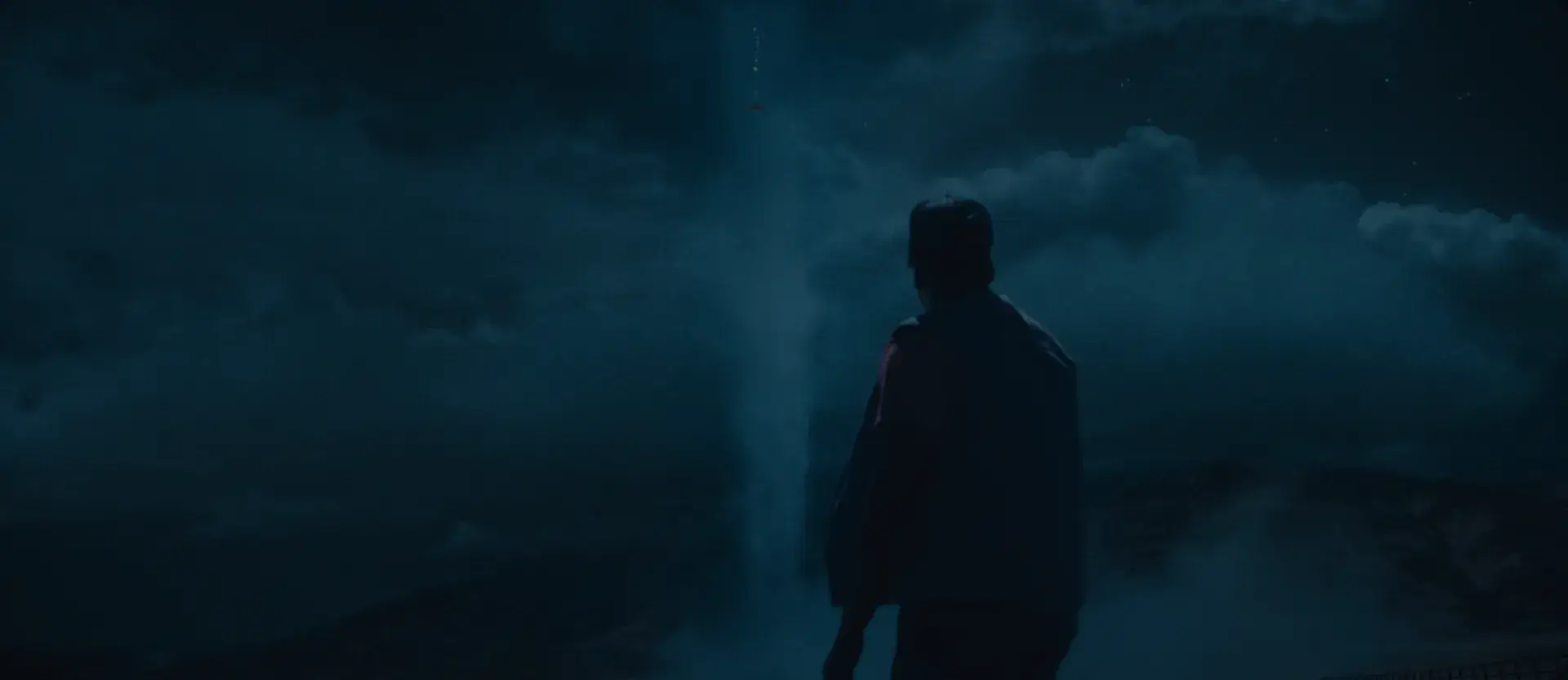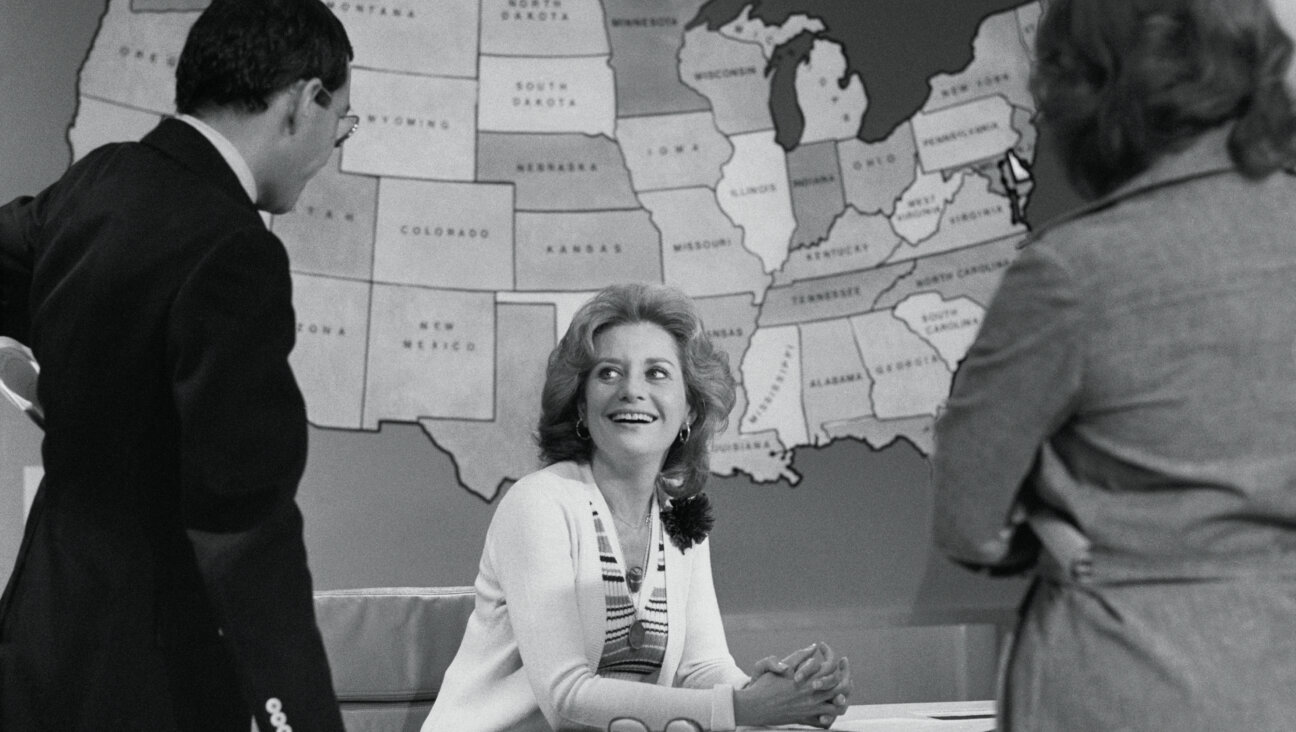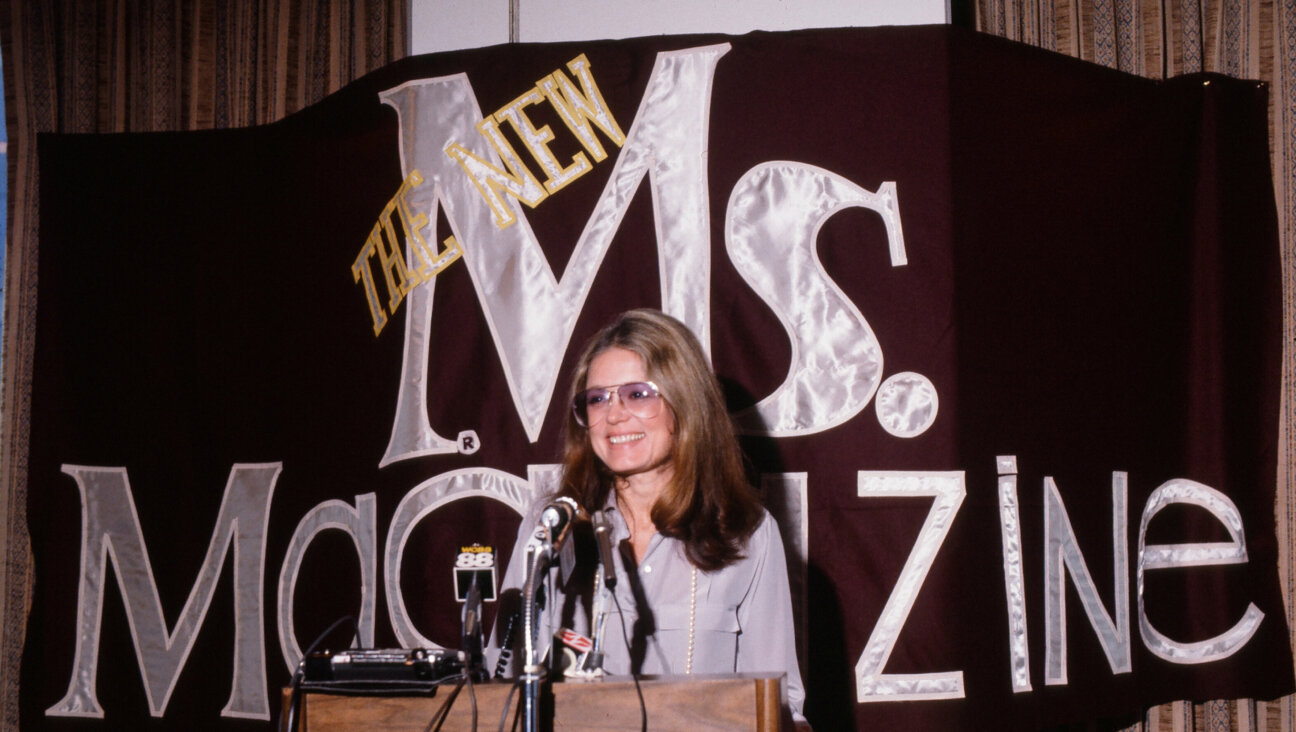Why ‘Nope’ spotlights Jewish prophets and mitzvahs
Jordan Peele’s blockbuster quotes the prophet Nahum and gives pride of place to the number 613

Daniel Kaluuya in “Nope.” Photo by Universal Pictures
The following contains major spoilers for Jordan Peele’s “Nope.”
Jordan Peele’s “Nope” is an immensely entertaining meditation on how filmmaking affects both subject and viewer. Depicting an extraterrestrial standoff in the desert of California, it is also about humanity’s relationship with animals, the unknown and the omnipotent.
The alien at the center of the film cloaks its presence in a cloud, like God on Mount Sinai or the spaceships in “Close Encounters.” And it has a maw shaped like a camera’s aperture – or maybe a projector or a screen. Terrorizing the only Black-owned Hollywood horse ranch, this flying saucer-shaped entity, we come to learn, is wholly hostile to being observed. It’s not a stretch to say that to see it is to die. Those are the rules.
“Nope,” like Peele’s last film, “Us,” contains moments of prophetic foreboding. While the previous flick featured a regular reminder of Jeremiah 11:11 (“Therefore thus saith the Lord, Behold, I will bring evil upon them, which they shall not be able to escape”), this one begins with text from another prophet.
Before we see anything else, we’re greeted with these words from Nahum 3:6: “I will cast abominable filth upon you, make you vile, and make you a spectacle.”
In their original context, these words are a vow to heap judgment on Nineveh, capital of the Assyrian Empire. In “Nope,” their valence shifts to the realm of another foundered empire: Hollywood, and what it does to the people and, notably, animals, it commits to film for mass entertainment. It’s also no mistake the central characters are the descendants of an overlooked cinema pioneer, the Black jockey in Eadweard Muybridge’s “The Horse in Motion,” often regarded as the first film. While the jockey’s likeness was immortalized, his name, unlike Muybridge’s, was forgotten.
With the coming of the alien, Tinsel Town’s usual methods of exploitation are quite literally overshadowed. This creature will, in a reversal voyeurism, rain down debris and gorge on those who attempt to capture its image. (Or even gaze in its direction; “Don’t Look Up,” if it hadn’t already been taken, could have been a serviceable alternate title.)
In the first half of the film, the nature of the alien, first believed to be a spaceship, remains obscure. The owners of the ranch, siblings O.J. (Otis, Jr. played by Daniel Kaluuya) and Emerald (Keke Palmer) are alerted to its presence by their skittish horses. They later endeavor to record it using high-tech cameras, hoping to sell the footage and save their struggling family business. Their neighbor, Jupe (Steven Yeun), owns a Western theme park and is wiser to the alien’s movements, while still believing it to be a UFO.
As he tells a crowd one evening during a show, six months prior his family all “bore witness to an absolute spectacle.” The craft, belonging to a species he calls “the viewers,” appeared and abducted a bay horse named Trigger at exactly 6:13 p.m.
One might wonder if Peele has spent some time with Jewish commentaries, since 613 is the traditionally cited number of mitzvot found in the Torah. Among those 613 are commandments regarding sacrifice, one of which Jupe aimed to perform in offering a horse to an alien for the viewing pleasure of an audience.
The number 613 is, in fact, the crux of the numerology of “Nope.” It’s there in the first frames of the film, in a grisly scene where a trained chimpanzee, an actor in a family sitcom called “Gordy’s Home,” massacres the cast in what Jupe describes as “six minutes and 13 seconds of havoc.” Jupe knows because he witnessed the rampage himself as a child actor on the show. Bizarrely, he even keeps a museum devoted to “Gordy’s Home” merch in a room near his office. His habit of turning the tragic into entertainment will have consequences as he himself becomes a spectacle, along with all those who gawp at the camera-shy visitor from outer space.
O.J. and Emerald fare better, determining that the spaceship is actually a creature, and one that behaves a lot like the animals they have spent their lives around.
“I don’t think it eats you if you don’t look it in the eye,” O.J. concludes. “Any animal’s got rules.”
One recalls how Moses, wishing to behold God’s face, is told “a human being may not see Me and live” (Exodus 33:20). While the alien is no Ezekiel’s Wheel-type emanation of the divine, there is no denying that it, like Jews and their God, has rules – even if there are fewer than 613 of them.
After announcing a plan to compromise with the alien, O.J. is asked how he might “enter an agreement with a predator,” an echo of a covenant perhaps not unfamiliar to biblical Jews who saw God smite down enemy empires and the Israelites who disobeyed Him. Truly the lasting commitment is not really with this menace from outer space – by no means a God – but to the creatures and people on earth, another way of understanding what it is to be Chosen.
For all the film’s boisterous biblical allusions, the essence of its Jewishness, to those who observe daily mitzvot, may come in a quiet moment between two siblings with the daily obligations of operating a ranch and caring for its animals. After a pit stop at a diner, O.J. worries about work that needs to be done back home.
There’s “shit to do,” he says. “Always some shit to do,” Emerald responds. While we may not phrase it quite that way, most Jews can agree there’s always another mitzvah to perform. Whether it’s wrapping tefillin or warding off intergalactic predators, it’s all Tikkun Olam.
























